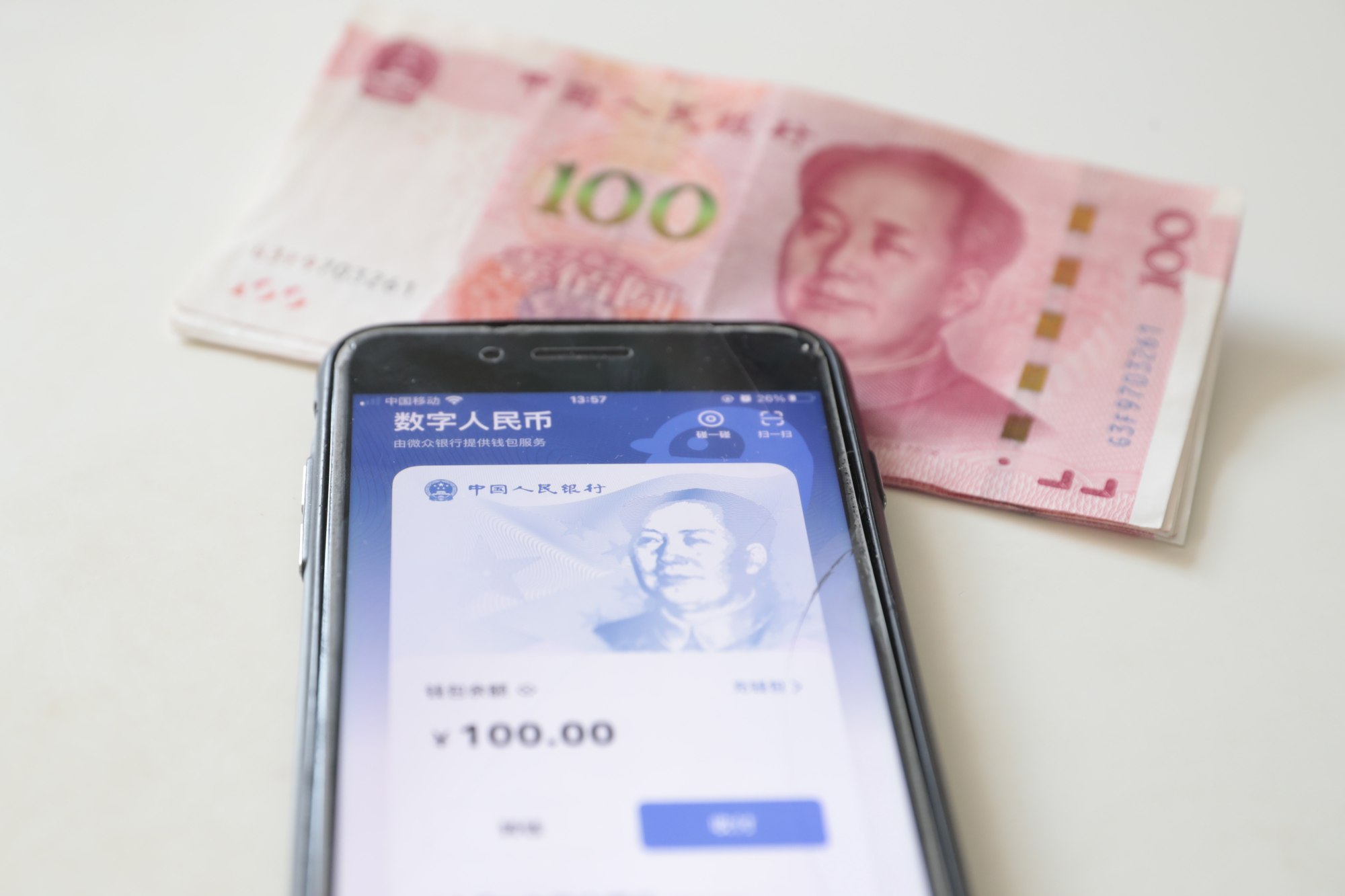
China digital currency: Shenzhen hands out e-CNY vouchers worth US$4.5 million via internet platform Meituan
- Winners will receive a virtual ‘red packet’, a traditional Chinese symbol of good fortune, containing 88, 100 or 128 yuan of the digital currency
- Shenzhen is one of the first cities in the country to launch trials of the e-CNY, officially called Digital Currency Electronic Payment
Shenzhen will hand out e-CNY vouchers worth 30 million yuan (US$4.5 million) via local service giant Meituan, in the latest example of cooperation between China’s digital currency and the country’s major internet service providers.
Chinese citizens living in the southern Chinese city registered for the first round of the lottery through the Meituan app between Monday and Wednesday this week, with the results to be announced on Thursday. The second round starts on June 9, according to the lottery page on the app.
Winners will receive a virtual “red packet”, a traditional Chinese symbol of good fortune, containing 88, 100 or 128 yuan of the digital currency, that can be spent on groceries, food deliveries and bike rentals through the Meituan app, as well as at selected offline stores. Consumers can top-up their e-CNY wallet if the lottery voucher does not cover the bill.
China’s digital yuan gets schooled with student card in Hainan
The Commerce Bureau of Shenzhen Municipality, which is hosting the campaign, said it aims to “promote the orderly recovery of consumption while containing the Covid-19 pandemic”.
Shenzhen is one of the first cities in the country to launch trials of the e-CNY, officially called Digital Currency Electronic Payment (DCEP). Since 2019, the city has handed out more than 80 million yuan of e-CNY vouchers in four rounds. It is also one of three cities to host the central bank’s Digital Currency Research Institute, together with Beijing and Suzhou.
China’s rapid expansion of its DCEP trials have even caught the attention of US lawmakers. Last week, Republican senators Tom Cotton, Mike Braun and Marco Rubio proposed a bill to prohibit US app platforms from enabling transactions using digital yuan to “reject China’s attempt to undermine [the US] economy”.
Robert Greene, a former senior adviser to the US Department of Treasury, published an article last July that said one potential function of the e-CNY was to skirt US financial sanctions.
Regardless, with e-CNY Beijing wants to become a world pioneer in digital currency but there is no timetable for an official launch.

For now, China’s pervasive third-party payment apps, Alipay from Ant Group and WeChat Pay owned by Tencent Holdings, both support the e-CNY. Meituan and e-commerce app JD.com also accept digital yuan payments.
Ant is an affiliate of Alibaba Group Holding, owner of the South China Morning Post.

